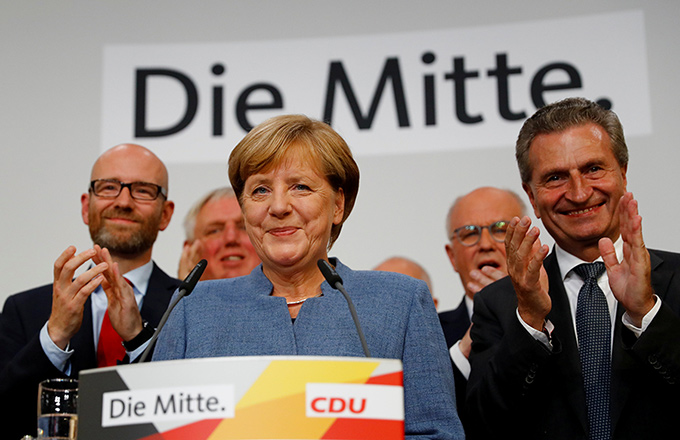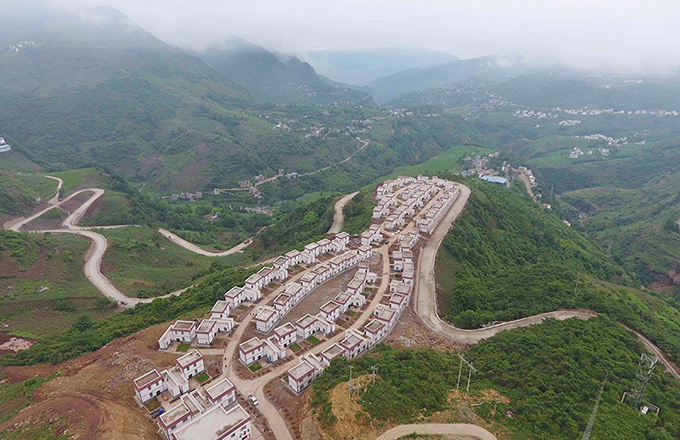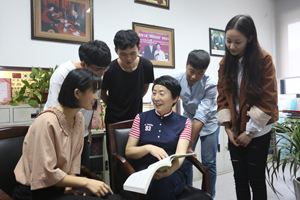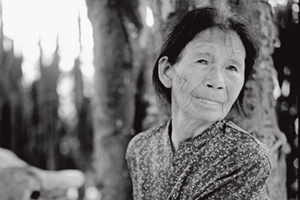China, US neither in zero-sum game nor popularity contest
A zero-sum mentality about China-US relations is reflected not only in the thinking of some US politicians, but also in a new survey conducted by the Pew Research Center.
The survey released on Sept 21 bore a title saying people in the Philippines still favor the United States over China, but that the gap is narrowing. It clearly suggests that one's gain is another's loss.
The report finds that people in the Philippines still like the US and have confidence in its leader, President Donald Trump.
But Filipinos also share positive views of China and its leader, President Xi Jinping. And overall, the perception gap between the US and China in the Philippines is narrowing.
According to the survey, 78 percent in the Philippines have a positive view of the US as of this spring, down from 92 percent who expressed positive sentiments in 2015. And despite the Philippines being the most pro-Trump nation in Pew's spring 37-country survey, confidence in Trump now is lower than it was in then-President Barack Obama in 2015.
Meanwhile, two-thirds say having a strong economic relationship with China is more important for ties between the two nations, while only 28 percent say being tough with China on territorial disputes is more vital. This represents a dramatic shift since that question was last asked in 2015.
And on global economic status, about half of Filipinos (49 percent) say that the US is still the leading economic power, but that is down from 66 percent who said so in 2015. A quarter now name China as the world's leading economy, up from 14 percent the last time the Philippines was surveyed.
By comparing these figures, Pew seems to suggest that China and the US are engaging in a popularity contest in the Philippines. But the Philippines, and indeed all the countries in the region, should be encouraged to have good relations with both China and the US, a real win-win situation for not just the three countries involved, but for the region and the world.
That was certainly not the policy under Obama when he launched the US pivot-to-Asia policy, trying to gang up US allies on China.
The Obama administration had done everything it could to internationalize the South China Sea issue and had used the Philippines, a US ally, to advance the American strategy.
The US was believed to be fully behind the scenes when the Philippines, under President Benigno Aquino III, filed the arbitration suit in 2013 against China in a tribunal in The Hague, a case in which China had refused to participate.
Since becoming Philippines president in June 2016, Rodrigo Duterte has refused to be used by the US to advance its strategy. His tough rhetoric on the US and softened rhetoric on China, especially compared with his predecessor Aquino III, has worried many in the US.
The US government, lawmakers and pundits have generally expressed negative views of Duterte since he took office last June. Some even believe that he would not able to serve the full six-year term.
However, the Pew survey finds that Duterte and his policies are widely popular at home despite concerns expressed by some governments, in particular the US, over Duterte's clashes with drug cartels and alleged human rights violations.
Fully 86 percent have a favorable view of Duterte himself; 78 percent support his handling of the illegal-drugs issue; and 62 percent say that the Philippines government is making progress in its anti-drug campaign.
At the same time, 78 percent believe the current economic situation is good, and 57 percent are satisfied with the direction of the country, a 21 percentage-point increase from 2014, the last time this question was asked in the Philippines. In 2014, the Philippines was still led by Aquino III.
The Philippines under Duterte has tried to develop an independent foreign policy rather than being a US puppet most of the time. Such an independent policy is dealing a heavy blow to those who still view the relationship between the three countries as zero-sum.
Contact the writer at chenweihua@chinadailyusa.com



























